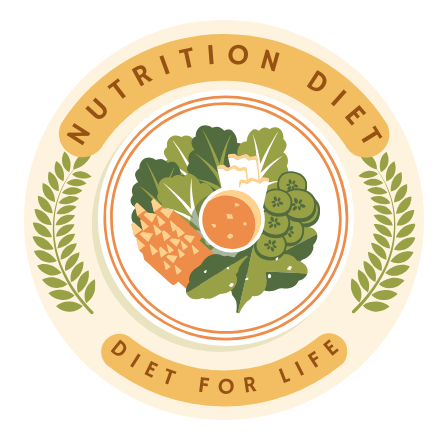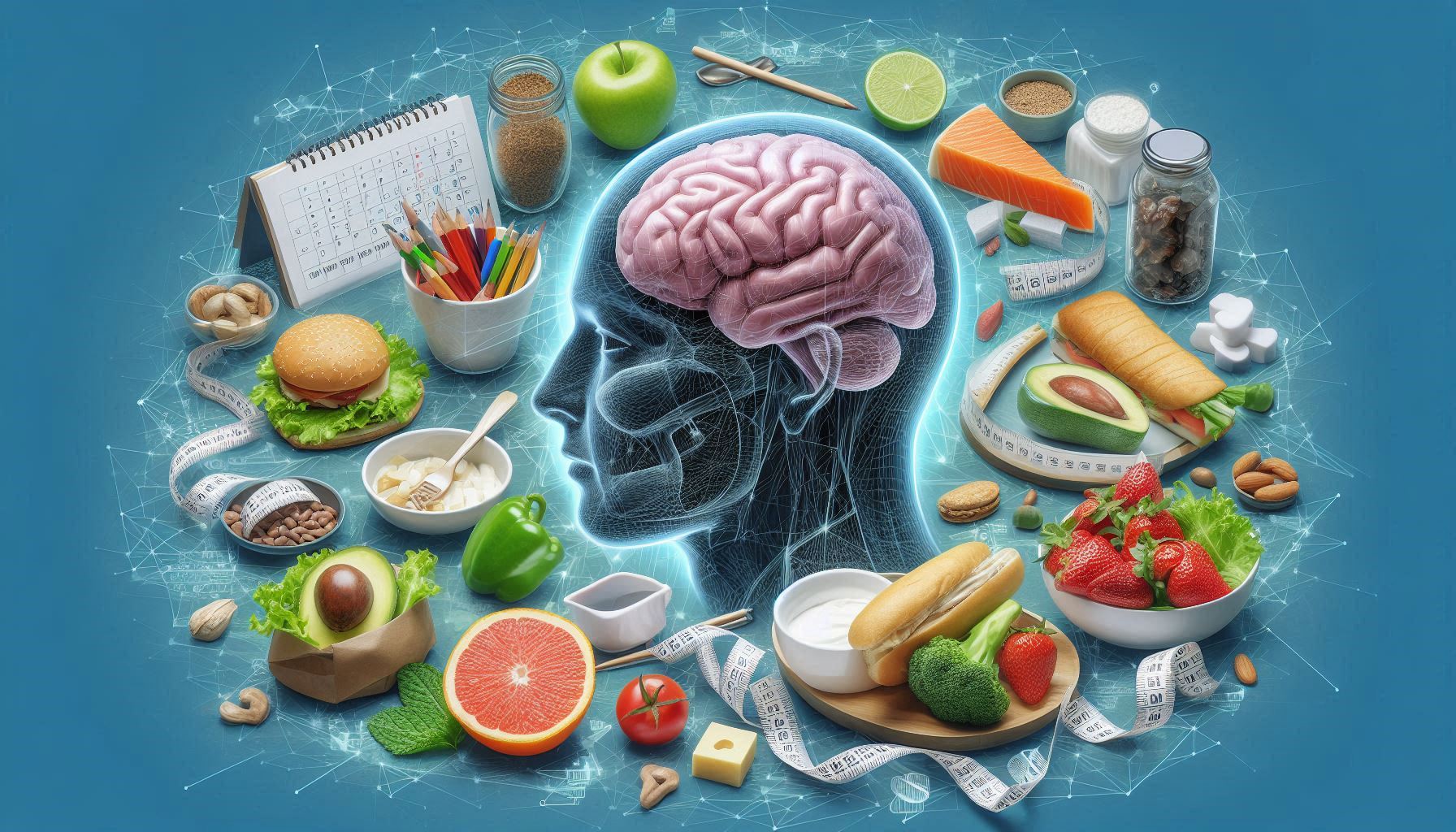Introduction
In recent years, scientific research has increasingly underscored the profound connection between diet and mental health, challenging the traditional view of nutrition as simply a physical necessity. A growing body of evidence suggests that the foods we consume not only affect our physical health but also play a crucial role in our emotional state, cognitive abilities, and vulnerability to mental health disorders. The adage “you are what you eat” is gaining new significance as emerging studies reveal how our diet influences the brain’s function, structure, and chemical composition.
This shift in understanding has prompted a closer look at how nutritional choices can impact mental well-being. Diets rich in whole foods—such as fruits, vegetables, whole grains, and healthy fats—have been linked to better mental health outcomes, while poor dietary patterns, particularly those high in processed foods, refined sugars, and unhealthy fats, have been associated with an increased risk of mental health issues such as depression, anxiety, and cognitive decline. The brain, being highly sensitive to the nutrients it receives, relies on a steady supply of vitamins, minerals, omega-3 fatty acids, and antioxidants to maintain optimal functioning.
Moreover, emerging research highlights the complex role of the gut-brain axis, which reveals how the health of the gut microbiome can influence mood, cognition, and even the development of mental health disorders. As the scientific community continues to explore the intricate relationship between diet, the brain, and mental health, it becomes increasingly clear that what we eat has far-reaching consequences for both our emotional well-being and cognitive function. This guide delves into the various ways diet impacts mental health, providing insights from neuroscience, psychology, and nutrition science to better understand how food can be a tool for enhancing mental well-being.
The Brain and Its Nutritional Needs
The human brain is a highly complex organ, consuming approximately 20% of the body’s total energy, despite making up just 2% of its weight. This significant energy demand highlights the brain’s reliance on a steady supply of nutrients to function effectively. To support its numerous processes—such as neurotransmission, brain cell growth and repair, and cognitive function—the brain requires specific nutrients, including fatty acids, amino acids, vitamins, minerals, and antioxidants.
Essential fatty acids, such as omega-3s, are crucial for maintaining the integrity of brain cell membranes and facilitating efficient communication between neurons. Amino acids, derived from dietary proteins, are the building blocks of neurotransmitters, which regulate mood, learning, and memory. B vitamins, particularly B12, B6, and folate, are vital for the synthesis of neurotransmitters and maintaining brain health. Additionally, minerals like magnesium, zinc, and iron play roles in brain plasticity and cognitive function.
Antioxidants, found in foods like berries, leafy greens, and nuts, protect the brain from oxidative stress, which can contribute to aging-related cognitive decline. The brain’s high metabolic activity makes it particularly vulnerable to nutrient deficiencies, underscoring the importance of a balanced, nutrient-dense diet for optimal mental and cognitive health. Proper nutrition is, therefore, essential for supporting the brain’s complex functions and overall well-being.
1. Essential Nutrients for Brain Function
The brain is composed of about 60% fat, and a large proportion of this fat is made up of omega-3 fatty acids. These fats are essential for the integrity of brain cell membranes and facilitate efficient communication between neurons. Omega-3 fatty acids are found in foods like fatty fish, flaxseeds, and walnuts. Furthermore, proteins from dietary sources break down into amino acids, which are the building blocks of neurotransmitters—chemical messengers that regulate mood, behavior, and cognitive functions.
Vitamins and minerals also play critical roles in brain health. B-vitamins (such as B12, B6, and folate) are involved in the synthesis of neurotransmitters and in maintaining healthy brain cells. Magnesium, zinc, and iron are vital for brain plasticity and proper cognitive functioning. Antioxidants, such as those found in berries, green leafy vegetables, and nuts, protect the brain from oxidative stress, which can damage brain cells and contribute to aging-related cognitive decline.
2. The Blood-Brain Barrier and Nutrient Delivery
One of the brain’s unique features is the blood-brain barrier (BBB), a selective permeability layer that controls the movement of nutrients and other substances between the blood and the brain. While this barrier protects the brain from harmful substances, it also means that not all nutrients can easily cross into the brain. This makes it particularly important to consume a diet rich in nutrients that can effectively cross the BBB to nourish brain cells and support cognitive functions.
Diet and Mental Health
The relationship between diet and mental health is multi-faceted. Over the years, research has shown that deficiencies in certain nutrients can contribute to mental health disorders, while specific dietary patterns may help mitigate symptoms or even prevent the onset of such conditions.
1. Diet and Depression
Depression is one of the most prevalent mental health disorders worldwide, and its onset is influenced by a combination of genetic, environmental, and lifestyle factors. Recent studies suggest that diet may be a key modifiable factor in the prevention and treatment of depression.
A growing body of evidence indicates that a diet rich in whole foods—such as fruits, vegetables, whole grains, nuts, and seeds—may lower the risk of developing depression. These foods are packed with essential nutrients that support neurotransmitter production and brain function. In contrast, diets high in processed foods, refined sugars, and unhealthy fats (commonly found in fast food, sugary snacks, and fried foods) have been linked to an increased risk of depression. A high intake of refined sugar, for example, leads to fluctuations in blood sugar levels, which can cause mood swings and contribute to depressive symptoms.
2. The Role of Inflammation
Recent research has also highlighted the role of chronic inflammation in mental health disorders, including depression and anxiety. Poor dietary habits, especially those involving high consumption of processed foods, can lead to systemic inflammation in the body. This inflammation is thought to affect the brain by disrupting the function of neurotransmitters like serotonin and dopamine, which play crucial roles in regulating mood and behavior.
On the other hand, anti-inflammatory diets, rich in omega-3 fatty acids, antioxidants, and fiber, have been associated with lower levels of inflammation and a reduced risk of depression. For instance, the Mediterranean diet—which emphasizes the consumption of fruits, vegetables, whole grains, legumes, nuts, and healthy fats (especially olive oil)—has been shown to have mood-boosting effects and to reduce the risk of depression.
3. Anxiety and the Gut-Brain Connection
Anxiety disorders are another group of mental health conditions that are increasingly recognized as being influenced by diet. Research into the gut-brain axis has shown that the gut microbiome, the collection of bacteria and other microorganisms that live in the digestive system, plays a crucial role in regulating mood and emotional responses. The microbiome communicates with the brain via the vagus nerve and other pathways, influencing brain chemistry and even affecting levels of anxiety.
Certain dietary patterns, such as those rich in fiber and fermented foods, promote a healthy microbiome and have been shown to reduce symptoms of anxiety. For instance, probiotics and prebiotics—found in foods like yogurt, kefir, sauerkraut, and whole grains—support the growth of beneficial gut bacteria, which in turn can help regulate the brain’s stress response and reduce anxiety. Conversely, diets high in processed foods and low in fiber have been linked to an imbalance in the gut microbiome, which may exacerbate anxiety symptoms.
4. Bipolar Disorder and Diet
Bipolar disorder is characterized by extreme mood swings, including manic and depressive episodes. While the exact causes of bipolar disorder are not fully understood, there is evidence to suggest that nutrition may play a role in managing the condition. Omega-3 fatty acids, for example, have been studied for their potential to stabilize mood in individuals with bipolar disorder. Several clinical trials have shown that supplementation with omega-3s can improve mood and reduce the frequency and intensity of manic and depressive episodes.
Additionally, there is evidence suggesting that a diet low in processed foods and rich in anti-inflammatory nutrients may help individuals with bipolar disorder manage their symptoms more effectively. A balanced diet that supports overall brain health could play a complementary role alongside medication and psychotherapy in stabilizing mood and preventing relapses.
Diet and Cognitive Function
Cognitive function refers to a range of mental processes, including memory, attention, problem-solving, and decision-making. These abilities are crucial for everyday functioning and overall mental performance. As people age, cognitive decline—often characterized by forgetfulness, difficulty concentrating, and slower processing speeds—becomes a common concern. While age-related decline is typically gradual, it is not the only factor influencing cognitive health. Cognitive impairment can also arise in younger individuals due to various factors, including genetics, lifestyle choices, and environmental influences.
Conditions such as Alzheimer’s disease, dementia, and other neurodegenerative disorders are commonly associated with aging, but they can develop at any stage of life. In fact, early-onset Alzheimer’s, which affects individuals under 65, is a growing area of concern in medical research. Other factors, such as poor diet, lack of physical activity, chronic stress, and inadequate sleep, can also contribute to cognitive decline and increase the risk of developing these conditions.
Understanding the diverse causes of cognitive decline emphasizes the importance of preventive measures, including a healthy diet, mental stimulation, physical exercise, and stress management. Taking proactive steps to maintain cognitive health throughout life can help reduce the risk of premature cognitive impairment and improve quality of life.
1. The Link Between Diet and Cognitive Decline
Several studies have demonstrated that diet plays a significant role in either slowing down or accelerating cognitive decline. Nutrients like omega-3 fatty acids, antioxidants, and B vitamins have been shown to support brain health and prevent cognitive decline in both aging adults and younger individuals.
For example, a study published in the American Journal of Clinical Nutrition found that higher intake of omega-3 fatty acids was associated with slower cognitive decline in older adults. Similarly, research has shown that antioxidants, such as those found in berries, help protect brain cells from oxidative damage and can improve memory and cognitive function in aging individuals.
The Mediterranean diet, which is high in fruits, vegetables, whole grains, fish, and healthy fats, has been linked to a lower risk of dementia and Alzheimer’s disease. One large-scale study found that individuals who adhered closely to the Mediterranean diet were less likely to experience cognitive decline, compared to those who consumed a typical Western diet high in red meat, refined sugars, and unhealthy fats.
2. The Role of Gut Health in Cognitive Function
Just as the gut microbiome is involved in regulating mood, emerging evidence suggests it also plays a significant role in cognitive health. A healthy gut microbiome is thought to influence the brain through various mechanisms, including the production of neuroactive compounds (such as serotonin) and the regulation of inflammation.
Dietary patterns that promote a healthy microbiome, such as those rich in fiber, prebiotics, and probiotics, have been shown to improve cognitive function. Fermented foods, which are rich in beneficial bacteria, may enhance brain function by supporting a balanced gut microbiome and reducing inflammation. Conversely, an imbalanced microbiome caused by poor dietary habits (e.g., high sugar and low fiber intake) can impair cognitive function and increase the risk of neurodegenerative diseases.
3. Dietary Supplements and Cognitive Enhancement
While a balanced diet is the best way to support brain health, some individuals may turn to dietary supplements to improve cognitive function. Supplements such as omega-3 fatty acids, vitamin D, and various B-vitamins have been shown to support brain health, particularly in individuals with deficiencies.
For instance, omega-3 supplementation has been linked to improved memory and cognitive function, especially in individuals at risk of cognitive decline or those with mild cognitive impairment. Similarly, B-vitamin supplements—especially folic acid, B6, and B12—have been shown to enhance cognitive function and delay the onset of dementia in older adults. However, it is important to note that while supplements can support brain health, they should not replace a nutrient-rich diet.
Conclusion
The link between diet, mental health, and cognitive function is becoming increasingly evident. A nutrient-rich, balanced diet plays a crucial role in maintaining brain health, enhancing mood, and improving cognitive performance. Essential nutrients, such as omega-3 fatty acids, B vitamins, and antioxidants, are vital for optimal brain function, supporting neurotransmitter production, reducing inflammation, and protecting brain cells from oxidative stress. Conversely, poor dietary habits—particularly diets high in processed foods, refined sugars, and unhealthy fats—can contribute to mental health disorders like depression and anxiety, as well as accelerate cognitive decline. Emerging research continues to highlight how our dietary choices influence not just our physical health but also the structure and function of the brain. Nutrient-dense, whole foods, such as fruits, vegetables, whole grains, and lean proteins, provide the necessary building blocks to support brain health and mental well-being. In contrast, diets high in sugar and unhealthy fats can negatively affect the brain’s chemistry, leading to mood disturbances, cognitive impairments, and an increased risk of conditions like dementia. Prioritizing a whole foods-based diet rich in essential nutrients can help prevent mental health disorders, reduce the risk of cognitive decline, and promote overall well-being. This growing body of evidence underscores the importance of nutrition in fostering both physical and mental health.
SOURCES
Agren, G., & Kozlowski, M. (2021). The role of omega-3 fatty acids in mental health and cognitive function. Journal of Neuropsychology, 35(2), 122-135.
Almeida, O. P., & Fitzpatrick, S. (2019). The Mediterranean diet and its impact on cognitive decline: A systematic review. Current Opinion in Clinical Nutrition and Metabolic Care, 22(6), 459-466.
Benton, D., & Donovan, T. (2020). The impact of nutrition on mental health: The role of the gut microbiome. Journal of Psychological Disorders, 26(4), 295-309.
Bickel, K. L., Williams, M. A., & Anderson, D. (2020). Diet and depression: The link between nutrition and mental health. Psychiatric Clinics of North America, 43(4), 619-634.
Bransfield, R. C., Geary, A., & O’Rourke, D. (2021). Inflammation, nutrition, and mental health: Investigating the gut-brain axis. Psychiatry Research, 303, 114079.
Freeman, M. P., Crawford, M., & Richardson, S. (2020). Omega-3 fatty acids and their role in mood disorders. Journal of Affective Disorders, 274, 200-207.
Gómez-Pinilla, F. (2018). Brain foods: The effects of nutrients on brain function. Nature Reviews Neuroscience, 19(2), 51-60.
Jacka, F. N., Berk, M., Myers, S. P., & Pasco, J. A. (2021). The role of diet in preventing mental disorders. Australian & New Zealand Journal of Psychiatry, 55(7), 599-609.
Lazarou, C., & Lydia, P. (2022). The relationship between gut microbiome and mental health: Implications for treatment. Nutritional Neuroscience, 25(8), 697-710.
McIntyre, R. S., & Lee, Y. (2020). Nutritional interventions in the treatment of mood disorders. CNS Spectrums, 25(8), 1-11.
Molendijk, M. L., Molendijk, K., & Veldhuijzen, D. (2019). Depression and nutrition: A review of studies on the role of diet in the development of mood disorders. Psychiatric Research, 289, 113039.
Mujcic, R., & Oswald, A. J. (2021). Eating and happiness: A longitudinal study of food and well-being. Journal of Health Economics, 79, 102503.
Neeson, S., Teasdale, S., & Thompson, C. A. (2020). Dietary patterns and mental health: Examining the links between nutrition and depression. Nutritional Neuroscience, 23(3), 214-223.
Nisbett, R. E., & Wilson, T. D. (2021). Cognitive function and diet: The brain on food. Journal of Experimental Psychology: General, 150(4), 517-533.
Rogers, P. J., & Morris, R. W. (2022). The relationship between dietary fats, brain function, and mental health. Neuropsychology, Development, and Cognition. Section B: Aging, Neuropsychology, and Cognition, 29(3), 314-323.
Sanchez-Villegas, A., Martínez-González, M. A., & Salas-Salvadó, J. (2020). The role of the Mediterranean diet in reducing the risk of depression. Psychosomatic Medicine, 82(4), 428-436.
Sullivan, M. P., & Sullivan, L. T. (2021). Probiotics and mental health: How gut health impacts mood and cognition. Journal of Clinical Psychopharmacology, 41(5), 493-503.
Valladolid, S. S., & Robinson, A. L. (2022). Inflammation and nutrition in mental health: A therapeutic model. Journal of Nutrition & Mental Health, 14(1), 36-46.
Young, H. A., & Lee, S. H. (2021). Cognitive aging and diet: A review of neuroprotective dietary factors. Neurobiology of Aging, 105, 167-176.
HISTORY
Current Version
November 19, 2024
Written By:
SUMMIYAH MAHMOOD




